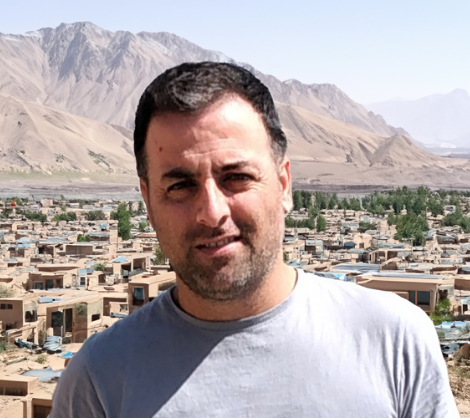Throughout history, the narratives of prophets have often been intertwined with themes of persecution, exile, and unwavering faith. The Bahá’í Faith, a relatively young religion born in the 19th century, embodies such a narrative through the life of its founder, Bahá’u’lláh, who faced immense tribulations during his ministry. This examination delves into the multifaceted dimensions of Bahá’í teachings as encapsulated in the experience of the “Prophet in Exile,” exploring how adversity and resilience coalesce to impart profound spiritual lessons.
First and foremost, a pertinent question arises: What can the experiences of a prophet in exile reveal about spiritual fortitude and the pursuit of justice? Bahá’u’lláh, born in Persia (modern-day Iran), was subjected to a series of imprisonments and exiles due to the radical nature of his teachings, which challenged entrenched religious and societal norms. His journey from the palatial comforts of his youth to the harsh confines of a prison cell signifies not merely a physical relocation but a pivotal transformation in consciousness that reverberates within the hearts of his followers.
In contemplating this existential journey, it is essential to recognize the profound impact of exile within the Bahá’í paradigm. Exile, as articulated in Bahá’í teachings, serves not only as a point of persecution but as an instrument of spiritual refinement. Bahá’u’lláh perceived his own tribulations as an opportunity for spiritual elevation. This perspective fosters a robust understanding of suffering as integral to the human experience, prompting followers to embrace hardship as a catalyst for personal growth and social change.
Furthermore, the teachings of Bahá’u’lláh illuminate a broader context of unity and justice. The manifestations of divine will, as Bahá’í doctrine posits, are inherently linked to a universal approach to humanity. Bahá’u’lláh’s exilic experiences further enriched this discourse, bringing forth principles that transcend national, racial, and sectarian boundaries. This universalism is poignantly captured in the phrase “the earth is but one country, and mankind its citizens,” challenging adherents to envision a world grounded in inclusivity.
Delving deeper, one may consider the philosophical implications of Bahá’u’lláh’s teachings on the nature of reality and existence. He posited that the human experience is ephemeral, shaped by forces beyond individual comprehension. In the face of persecution, such as that encountered by Bahá’u’lláh, followers are encouraged to cultivate patience and trust in the divine plan. This belief renders the trials faced not as arbitrary afflictions, but as ordained experiences meant to crystallize one’s faith and resilience.
The interplay between martyrdom and spiritual transcendence is another cornerstone of Bahá’í teachings. Bahá’u’lláh’s own trials laid the foundation for a broader discourse on sacrifice in the pursuit of divine principles. Many Bahá’ís regard the willingness of their founder to endure suffering as a profound testament to his commitment to his mission. Such narratives resonate deeply, instilling courage in followers who may grapple with their own challenges in the pursuit of justice and truth.
In examining the life of Bahá’u’lláh, it becomes evident that his exile served not only as a personal affliction but as a mirror reflecting the condition of humanity. The social injustices that precipitated his persecution echo throughout time, presenting a challenge not only to Bahá’ís but to all individuals committed to the principles of justice and equity. The stories of persecution, whether faced by Bahá’ís or individuals from other faith backgrounds, call forth a collective responsibility to champion the ideals of freedom and dignity.
In light of these teachings, one is compelled to confront a stark reality: How often do we find ourselves turning a blind eye to the struggles of others in the name of convenience or apathy? The teachings of Bahá’u’lláh implore us to cultivate not only our spiritual gardens but to actively engage in the restoration of justice within our societies. The very fabric of Bahá’í belief is interwoven with calls to action, urging individuals to transcend personal grievances and work tirelessly towards the common good.
This examination of the Prophet in exile also invites a contemplation of community dynamics within the Bahá’í Faith. The community, founded on principles of consultation, equality, and collective action, stands as a living testament to the efficacy of unity in the face of adversity. During Bahá’u’lláh’s trials, his followers rallied together, creating a resilient network of support that would endure beyond the temporal challenges posed by their circumstances.
Moreover, the narratives emerging from Bahá’u’lláh’s exile serve as a poignant reminder of the importance of education and empowerment in combating persecution. His teachings emphasized the necessity for both spiritual and intellectual development, which concurrently addresses the root causes of societal discord. The Bahá’í commitment to education for all, regardless of background, remains one of the faith’s most admirable tenants.
In conclusion, the story of Bahá’u’lláh, the Prophet in exile, is not merely a historical account; it is a living narrative that continues to inspire legions of individuals across the globe. The intersection of faith, persecution, and resilience is quintessentially Bahá’í, urging adherents to rise above their circumstances, champion justice, and cultivate a worldview anchored in unity. As we reflect on the lessons gleaned from this profound journey, may we be emboldened to embrace our spiritual callings and confront the prevailing challenges within our communities and beyond.
